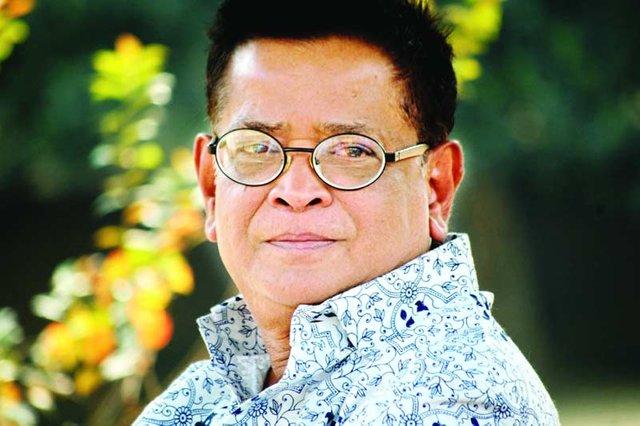Humayun Ahmed's Ekattar and Shaheed father
Picture of family disaster in the background of national disaster Humayun wrote, without any literary intent, not from the desire of future books, but as a family effort to share the misery among themselves. The personal book has been found, almost four decades later, Humayun Ahmed is then converting, but he has already changed the way in which the literary and literary mindset of Bangladesh has changed.
Humayun Ahmed, the father of his father's death, wrote in the same way that he demanded different views. There is no cut in this long written by Humayun Ahmed, it seems that he knows very well how to write. A man inside and in-house is talking about his father and family with absolute love, through the many details of the despicable detail, the heartfelt pictures of the family have been intensely and the events drag everyone to the unimaginable destiny

Pirojpur sub-divisional police officer Faizur Rahman was killed by Pakistan forces and killed in the city after entering the city. His sons and daughters began to develop only in life, two sons and one daughter were studying at Dhaka University, another daughter from Comilla, Faridah was educated, junior with her parents. At the time of the 25th March, when the Bengali nation faced the horrific massacre, the great crisis of daily life and the greatness of the life of the nation swept away with bloodshed, blood-loving father, lover of loving husband, compassion and responsibility, police officer Foyjur Rahman was devoted. He did not return to Colonel's office in the month of May, and his body was not found. After independence, it was identified that the buried dead body was buried at the right place, and the proper grave arrangement was minimized.
Immediately after the father's death, senior family member Humayun Ahmed, University of Honor's anniversary, decided to write down the killings. Yet, he had written down the death certificate, a martyr who killed him, without any casualties, except for the slightest manifestation of heart attack and stroke. Picture of family disaster in the background of national disaster Humayun wrote, without any literary intent, not from the desire of future books, but as a family effort to share the sadness among themselves.
The personal book has been found, almost four decades later, Humayun Ahmed was then converting, but he has already changed the creativity of the literary and literary mindset of Bangladeshi literature and literature. This Humayun Ahmed is a slightly shy young man, who is out of the mainstream but observes life intensively, trying to write, writing a small novel, and handed it to the Father, to fall in the middle-class family, to draw a scattered, fragmented life story. He became a man of another dimension, the martyrdom of the war of liberation and father, he would turn overnight into another The character, the author turned.
During the Liberation War, during the Liberation War, Humayun Ahmed attempted to write the death sentence, very surprisingly, there is no screaming of the book, there is a very unimaginable description of the incident, a remarkable dimension of nature, fear and fear of screaming inside his mind, and anxiety of the father's behavior . Banda Bhanga is not the emotional emotion, but the novelist wants to reach such an extent, as it is, in the same way, Humayun Ahmed writes about the ghosts of March-April-May. On 5th of May, the family members of a village dweller, who had taken refuge in the house, went to Pirojpur to attend the workshop, and the story of Humayun Ahmed came to the end of the journey. His handwritten commentary is 66 pages. The next 16 pages, mentioned by Muhammad Zafar Iqbal of inferiority complex, was part of his father's triumph, and he was able to give an account of the tragic consequences, so it was possible for him. The two brothers wrote in the same book written about their father's martyrdom, but it was unfortunate that the father's father's efforts were not to lose him even if he did not meet his body.
Then they have passed a long way of life, when the family book lost its whereabouts, disappeared into oblivion, nobody saw it. Then the sudden death of grandfather Humayun Ahmed was passed on to the family
